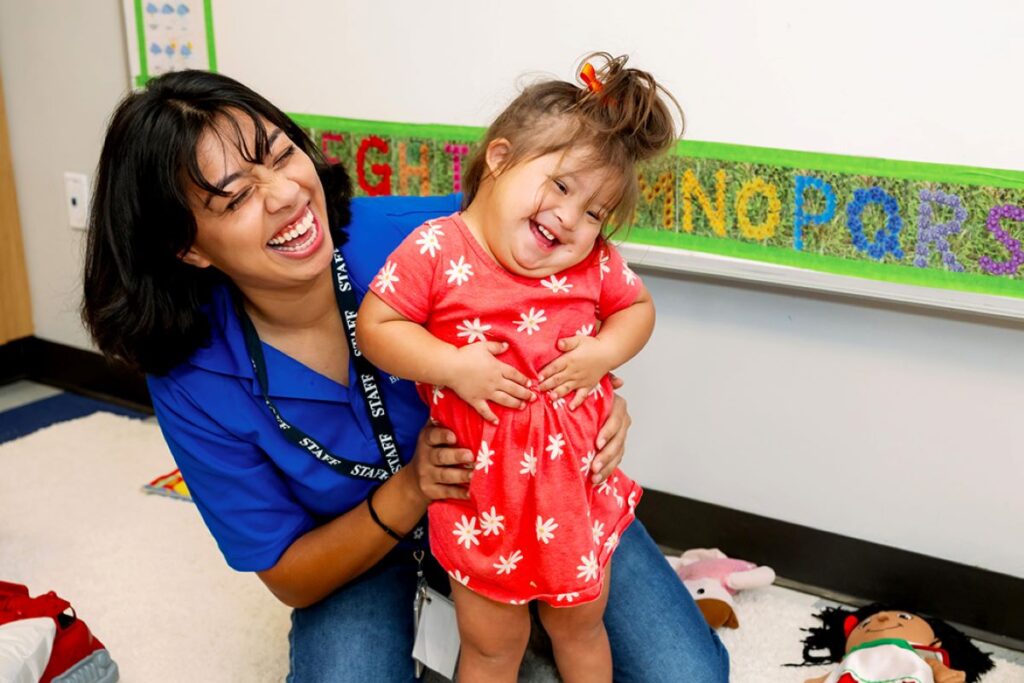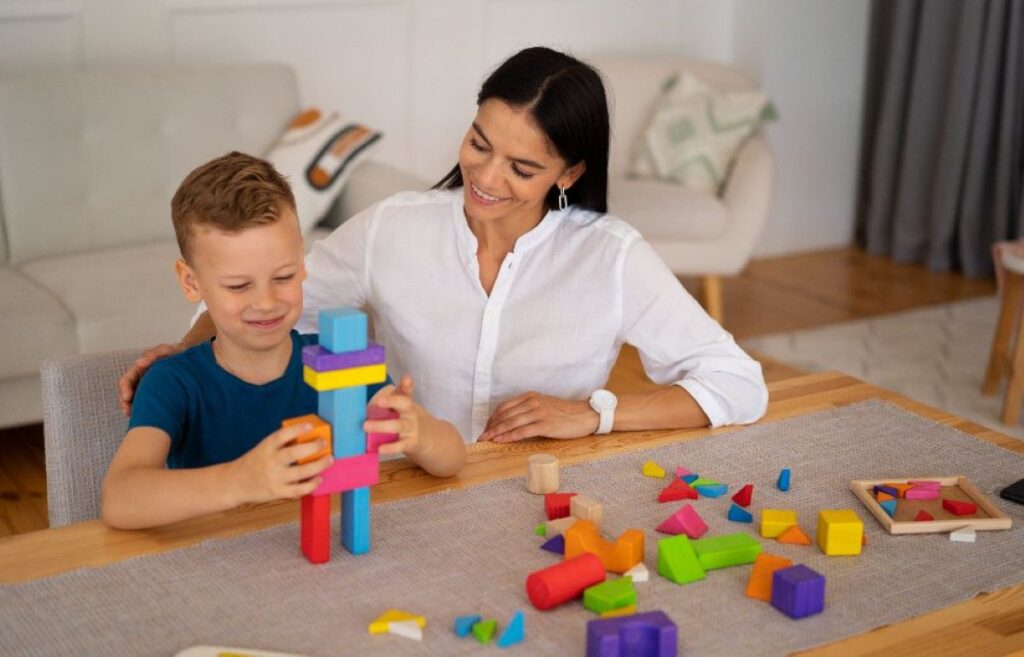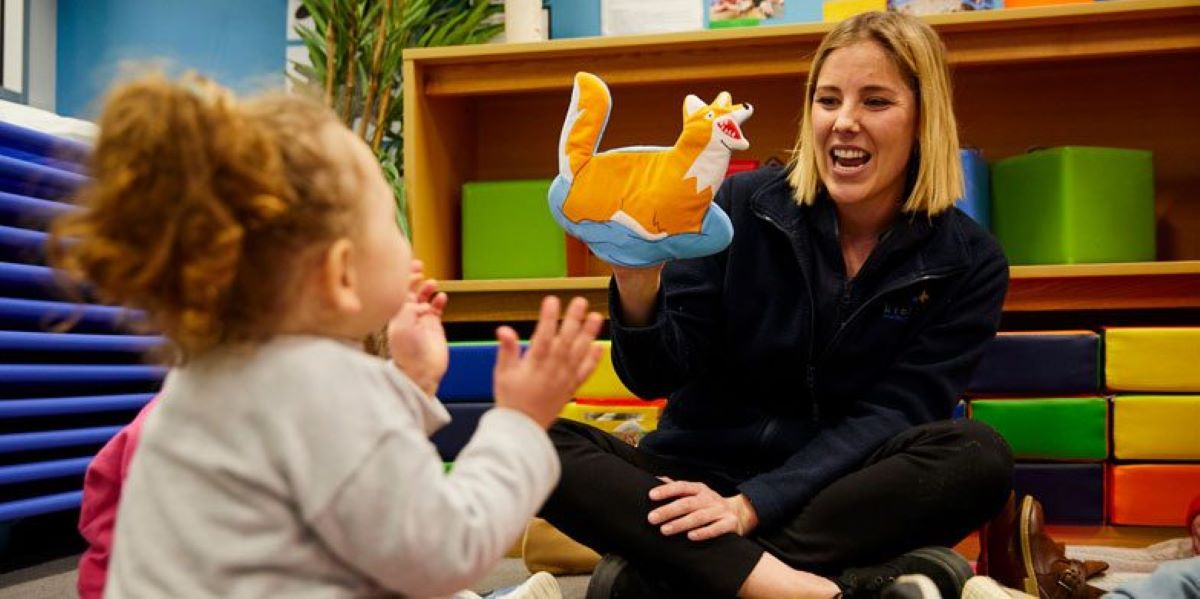Early intervention in kids’ speech therapy is a proactive approach to tackling communication issues during a child’s important developmental years. This specialised support, provided from birth to age three, lays the groundwork for effective communication and language growth.
The first three years of life are a crucial period when the brain shows incredible flexibility and ability to learn. During this time, children naturally pick up essential communication skills:
- Making sounds and babbling
- Recognising and understanding words
- Building basic vocabulary
- Forming simple sentences
Research shows that finding and addressing speech problems during these early years greatly improves outcomes. Early intervention services offer focused support through:
- Professional speech evaluation
- Tailored therapy plans
- Education and assistance for parents
- Regular monitoring of progress
Children who receive prompt therapeutic intervention demonstrate significant improvements in:
- Clearer speech
- Better understanding of language
- Enhanced social interaction abilities
- Readiness for academic challenges
Delays in dealing with speech and communication issues can affect a child’s social development, learning capabilities, and self-esteem. Early intervention creates opportunities for children to build strong communication foundations, allowing them to express themselves effectively and connect meaningfully with others.
Understanding Early Intervention in Kids’ Speech Therapy
Early intervention refers to a wide range of specialised services designed to meet the developmental needs of children. These services include:
- Speech and Language Therapy: Helping with communication difficulties, speech sounds, and language development
- Physical Therapy: Supporting large muscle skills and physical growth
- Occupational Therapy: Improving everyday skills and how the brain processes sensory information
- Developmental Therapy: Focusing on cognitive abilities and social-emotional development
Although the most important time for intervention is from birth to age three, these services can still be beneficial for children up to 10 years old. Studies show that getting support early on lays a stronger foundation for future growth and learning.
Providers like Stronger Together Foundation offer specialised interventions for neurodivergent children and those with developmental delays. These providers, registered under the National Disability Insurance Scheme (NDIS), provide:
- Effective therapeutic methods backed by research
- Treatment plans tailored to each individual
- Support strategies that involve the whole family
- Interventions that take place in the community
The way services are delivered is flexible and can be adjusted based on what each child needs. This includes:
- Therapy sessions conducted at home
- Interventions taking place at school
- Activities that involve community participation
- Appointments held in clinical settings
By being adaptable, this approach ensures that children receive the right support in various settings, making early intervention strategies more effective. Registered providers collaborate closely with families to develop therapy plans that are personalised and align with each child’s goals and daily routines.
The Critical Role of Neural Plasticity in Early Childhood Development
The human brain demonstrates remarkable adaptability during the first years of life. This phenomenon, known as neural plasticity, creates an optimal window for learning and development. Research indicates that children’s brains form 700 new neural connections per second during early childhood.
How Neural Plasticity Affects the Brain
Neural plasticity enables the brain to:
- Create new pathways for learning
- Strengthen existing connections through repetition
- Adapt and reorganise in response to experiences
- Establish foundations for future skill development
How Early Speech Therapy Interventions Work
Early speech therapy Australia interventions tap into this natural plasticity by:
- Stimulating specific brain regions responsible for language and communication
- Creating positive learning experiences that reinforce neural pathways
- Introducing structured activities during peak periods of brain development
The Benefits of Early Therapeutic Support
Studies demonstrate that children who receive early therapeutic support show enhanced:
- Speech sound production
- Language comprehension
- Social communication skills
- Cognitive processing abilities
The brain’s heightened plasticity during early childhood creates an ideal environment for developing strong neural networks. Speech therapy interventions during this critical period help establish robust communication pathways that serve as building blocks for future learning and development.
Research from neuroscience confirms that early therapeutic interventions capitalising on neural plasticity lead to better developmental outcomes. These interventions create strong foundations for language acquisition, social interaction, and academic success. As highlighted in this comprehensive study, the impact of such early interventions is profound and long-lasting.
Benefits of Early Speech Therapy Intervention for Children with Developmental Delays or Communication Disorders
Early speech therapy intervention delivers transformative benefits for children facing communication challenges. Research demonstrates significant improvements in:
1. Speech Clarity and Articulation
- Proper sound formation and pronunciation
- Reduced stuttering patterns
- Enhanced verbal expression abilities
2. Communication Development
- Expanded vocabulary range
- Improved sentence structure
- Better language comprehension
3. Essential Social Skills
- Turn-taking in conversations
- Reading social cues
- Understanding non-verbal communication
Early intervention creates a protective shield against potential challenges that untreated speech difficulties might cause. Children who receive timely support show marked improvements in:
- Academic performance through better classroom participation
- Self-confidence during peer interactions
- Formation of meaningful friendships
- Reading and writing capabilities
The ripple effects extend into various aspects of daily life. Children demonstrate enhanced:
- Problem-solving abilities
- Expression of thoughts and needs
- Engagement in group activities
- Emotional regulation skills
These improvements build a strong foundation for future learning and development, setting children up for success in educational and social environments. The structured support provided through early intervention helps children navigate their communication challenges while building resilience and adaptive skills.

Supporting Families Through Early Intervention Strategies in Kids’ Speech Therapy Programs
A family-centred approach to speech therapy creates lasting positive outcomes for children with communication challenges. Parents become active participants in their child’s developmental journey through structured guidance and practical tools.
Essential Components of Family Support:
1. Home-based Communication Strategies
- Daily routine integration of speech exercises
- Custom-designed activities matching family lifestyle
- Age-appropriate language stimulation techniques
2. Parent Education and Skill Building
- Hands-on training in therapeutic techniques
- Recognition of communication milestones
- Understanding of developmental patterns
Speech therapists work alongside parents to create individualised support plans that reflect each family’s unique circumstances. This collaborative approach ensures therapy continues beyond clinical sessions into daily life.
Building Strong Family Partnerships:
- Regular progress updates and goal-setting sessions
- Flexible scheduling to accommodate family commitments
- Cultural considerations in therapy approaches
- Ongoing support through resource sharing
Parents gain confidence in supporting their child’s communication development through practical demonstrations and guided practice. This empowerment leads to consistent implementation of therapeutic strategies across various settings.
The partnership between families and speech therapists creates a supportive environment where children can practice new skills naturally. This integrated approach helps children generalise their learning from therapy sessions to real-world interactions.
Moreover, it’s essential to recognise that early intervention strategies are most effective when they involve the whole family. By incorporating research-backed methods into these strategies, we can further enhance the effectiveness of speech therapy programs for children.
Holistic and Contextual Approaches in Kids’ Speech Therapy Interventions for Optimal Results
A routine-based support model integrates speech therapy seamlessly into a child’s natural daily activities. This approach recognises that children learn best when therapy aligns with their established routines and familiar environments.
Real-World Learning Environments:
- Home settings allow children to practice communication during mealtimes, playtime, and bedtime routines
- Childcare centres provide opportunities for peer interaction and group communication
- Community locations like parks or libraries create authentic social experiences
- Shopping centres enable practical vocabulary development and social skills practice
The effectiveness of contextual learning stems from its ability to make therapy relevant and meaningful. When children receive support in their natural environments, they:
- Transfer skills more effectively to daily situations
- Experience reduced anxiety compared to clinical settings
- Develop communication strategies specific to their needs
- Build confidence through successful real-world interactions
A holistic approach considers multiple aspects of a child’s life:
- Daily schedules and family commitments
- Cultural and linguistic background
- Individual interests and preferences
- Environmental factors affecting communication
Speech therapists implementing this model adapt their techniques to fit naturally within established routines. They might incorporate communication goals during:
- Art and craft activities
- Outdoor play sessions
- Story time
- Snack preparation
- Social interactions with siblings
This contextual framework ensures therapy becomes an integrated part of daily life rather than an isolated clinical experience.
Funding Options and Accessibility for Families Seeking Early Intervention Services for Their Children With Speech Challenges
Accessing early intervention speech therapy services need not create financial strain for families. Multiple funding pathways exist to support children’s developmental needs:
1. National Disability Insurance Scheme (NDIS)
- Early Childhood Early Intervention (ECEI) pathway
- Funding for children aged 0-6 years
- Coverage for speech therapy assessments and sessions
- Support coordination services
2. Medicare Benefits
- Chronic Disease Management Plans
- Up to 5 allied health sessions annually
- Bulk billing options through select providers
3. Private Health Insurance
- Extras coverage for speech pathology
- Annual limits vary by policy level
- Gap payment considerations
Registered NDIS providers like Stronger Together Foundation guide families through the funding application process. These providers:
- Assist with gathering necessary documentation
- Help identify suitable funding pathways
- Provide evidence of developmental needs
- Support families during NDIS planning meetings
- Offer flexible payment arrangements
The combination of these funding options helps ensure speech therapy remains accessible to families across different financial circumstances. Many providers work with multiple funding streams, allowing families to maximise their access to essential early intervention services.
The Long-Term Impact on Developmental Outcomes From Timely Speech Therapy Interventions
Research shows strong connections between early speech therapy intervention and long-lasting developmental success. Children who receive targeted speech support during critical developmental periods demonstrate significant improvements in various areas:
Academic Achievement
- Higher reading comprehension scores
- Enhanced written expression abilities
- Stronger phonological awareness
- Better classroom participation rates
- Improved test-taking confidence
Social Development
- Enhanced peer relationships
- Reduced social anxiety
- Increased self-advocacy skills
- Greater participation in group activities
- Higher self-esteem ratings
Studies following children who received early intervention indicate that they require much less intensive therapy support as they grow older. A research review by the American Speech-Language-Hearing Association found that children who accessed speech therapy before the age of 3 showed:
- 60% reduction in the need for school-based speech services
- Lower rates of reading difficulties
- Decreased likelihood of requiring academic support services
- Better social integration with peers
These findings emphasise the preventative power of early intervention. The initial investment in speech therapy establishes a foundation for academic success, minimising the need for extensive remedial support during school years. Children develop strong communication skills that benefit them throughout their educational journey, from early learning environments to higher education opportunities.

Collaboration Among Families, Educators, And Therapists In Maximising The Effectiveness Of Kids’ Speech Therapy Programs
Successful speech therapy outcomes rely heavily on consistent support across all environments where a child spends time. A coordinated approach between speech therapists, educators, and families creates a robust support system that reinforces therapeutic goals throughout the day.
Key Elements of Effective Collaboration:
- Regular communication channels between therapists and teachers
- Shared progress reports and goal-setting meetings
- Consistent use of specific techniques and cues across settings
- Adaptation of therapy strategies for classroom implementation
Speech therapists can provide educators with practical tools and strategies to support children’s communication development during school hours. These might include:
- Visual aids and communication boards
- Specific prompting techniques
- Modified classroom activities
- Structured peer interaction opportunities
Teachers play a vital role by:
- Implementing recommended strategies during daily lessons
- Monitoring progress in the classroom setting
- Providing feedback on communication challenges
- Creating inclusive environments that encourage practice
The integration of speech therapy goals into daily classroom routines helps children generalise their skills across different contexts. This collaborative approach ensures children receive consistent support and reinforcement of therapeutic techniques throughout their day, maximising the effectiveness of their speech therapy programme.
Regular team meetings and shared documentation systems enable all stakeholders to track progress and adjust strategies as needed. This unified approach creates a supportive ecosystem where children can develop their communication skills naturally and effectively.
See Also : NDIS Occupational Therapy Services Now Available in Castle Hill
Conclusion
Early intervention in kids’ speech therapy is a powerful tool for improving communication skills and overall development. The early years of a child’s life are crucial for developing speech, language, and social skills.
The success of early intervention depends on:
- Neural plasticity – making the most of the brain’s ability to adapt
- Family engagement – empowering parents to be actively involved
- Professional collaboration – working together to support children in all areas
- Individualised approaches – tailoring therapy to each child’s specific needs
Research shows that addressing communication difficulties early on can prevent the need for more intensive interventions later in life. By involving families and fostering partnerships between therapists, educators, and caregivers, children receive comprehensive support that goes beyond therapy sessions and into their everyday lives.
Investing in early speech therapy intervention has wide-ranging benefits for a child’s academic, social, and emotional development. It lays the groundwork for confident communication and meaningful relationships throughout their life.



